Middle East Quotes
Quotes tagged as "middle-east"
Showing 1-30 of 234
“The most dangerous people in the world are not the tiny minority instigating evil acts, but those who do the acts for them. For example, when the British invaded India, many Indians accepted to work for the British to kill off Indians who resisted their occupation. So in other words, many Indians were hired to kill other Indians on behalf of the enemy for a paycheck. Today, we have mercenaries in Africa, corporate armies from the western world, and unemployed men throughout the Middle East killing their own people - and people of other nations - for a paycheck. To act without a conscience, but for a paycheck, makes anyone a dangerous animal. The devil would be powerless if he couldn't entice people to do his work. So as long as money continues to seduce the hungry, the hopeless, the broken, the greedy, and the needy, there will always be war between brothers.”
―
―
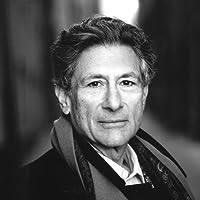
“The Orient and Islam have a kind of extrareal, phenomenologically reduced status that puts them out of reach of everyone except the Western expert. From the beginning of Western speculation about the Orient, the one thing the orient could not do was to represent itself. Evidence of the Orient was credible only after it had passed through and been made firm by the refining fire of the Orientalist’s work.”
― Orientalism
― Orientalism
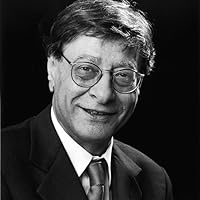
“The stars had only one task: they taught me how to read.
They taught me I had a language in heaven
and another language on earth.”
― Unfortunately, It Was Paradise: Selected Poems
They taught me I had a language in heaven
and another language on earth.”
― Unfortunately, It Was Paradise: Selected Poems
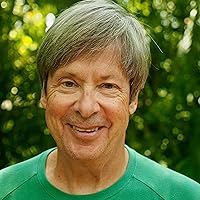
“Palestinian and Israeli leaders finally recover the Road Map to Peace, only to discover that, while they were looking for it, the Lug Nuts of Mutual Interest came off the Front Left Wheel of Accommodation, causing the Sport Utility Vehicle of Progress to crash into the Ditch of Despair.”
― Dave Barry's History of the Millennium
― Dave Barry's History of the Millennium
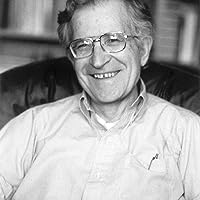
“Israel's demonstration of its military prowess in 1967 confirmed its status as a 'strategic asset,' as did its moves to prevent Syrian intervention in Jordan in 1970 in support of the PLO. Under the Nixon doctrine, Israel and Iran were to be 'the guardians of the Gulf,' and after the fall of the Shah, Israel's perceived role was enhanced. Meanwhile, Israel has provided subsidiary services elsewhere, including Latin America, where direct US support for the most murderous regimes has been impeded by Congress. While there has been internal debate and some fluctuation in US policy, much exaggerated in discussion here, it has been generally true that US support for Israel's militarization and expansion reflected the estimate of its power in the region.
The effect has been to turn Israel into a militarized state completely dependent on US aid, willing to undertake tasks that few can endure, such as participation in Guatemalan genocide. For Israel, this is a moral disaster and will eventually become a physical disaster as well. For the Palestinians and many others, it has been a catastrophe, as it may sooner or later be for the entire world, with the growing danger of superpower confrontation.”
―
The effect has been to turn Israel into a militarized state completely dependent on US aid, willing to undertake tasks that few can endure, such as participation in Guatemalan genocide. For Israel, this is a moral disaster and will eventually become a physical disaster as well. For the Palestinians and many others, it has been a catastrophe, as it may sooner or later be for the entire world, with the growing danger of superpower confrontation.”
―

“Be my lover between two wars waged in the mirror, she said.
I don't want to return now to the fortress of my father's house.
Take me to your vineyard.
Let me meet your mother.
Perfume me with basil water.
Arrange me on silver dishes, comb me,
imprison me in your name,
let love kill me.”
― Unfortunately, It Was Paradise: Selected Poems
I don't want to return now to the fortress of my father's house.
Take me to your vineyard.
Let me meet your mother.
Perfume me with basil water.
Arrange me on silver dishes, comb me,
imprison me in your name,
let love kill me.”
― Unfortunately, It Was Paradise: Selected Poems
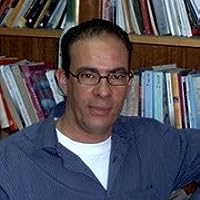
“الحديث مع فتاة متحررة بالنسبة لي هنا كان مثل نسمة هواء باردة ومنعشة، أستعيد بها روحي التي كانت تختنق أمام تناقضات وإزدواجية فتيات يردن التحرر، بينما يقررن أن الزواج والجلوس في البيت قد يكون نهاية المطاف، أو حتي بعض الفتيات المتحررات اللائي لا يرين غضاضة في أن ينفق عليهن رجل بالكامل. لم أستطع أن أفهم منطقهن الانتهازي، الحصول على مزايا التحرر، و مزايا النظام الشرقي الأبوي التقليدي معًا.”
― جنية في قارورة
― جنية في قارورة

“The first thing you notice, coming to Israel from the Arab world, is that you have left the most courteous region of the globe and entered the rudest. The difference is so profound that you're left wondering when the mutation in Semitic blood occurred, as though God parted the Red Sea and said: "Okay, you rude ones, keep wandering toward the Promised Land. The rest of you can stay here and rot in the desert, saying 'welcome, most welcome' and drowning each other in tea until the end of time.”
― Baghdad without a Map and Other Misadventures in Arabia
― Baghdad without a Map and Other Misadventures in Arabia

“How, then, does one become an activist?
The easy answer would be to say that we do not become activists; we simply forget that we are. We are all born with compassion, generosity, and love for others inside us. We are all moved by injustice and discrimination. We are all, inside, concerned human beings. We all want to give more than to receive. We all want to live in a world where solidarity and companionship are more important values than individualism and selfishness. We all want to share beautiful things; experience joy, laughter, love; and experiment, together.”
― On Palestine
The easy answer would be to say that we do not become activists; we simply forget that we are. We are all born with compassion, generosity, and love for others inside us. We are all moved by injustice and discrimination. We are all, inside, concerned human beings. We all want to give more than to receive. We all want to live in a world where solidarity and companionship are more important values than individualism and selfishness. We all want to share beautiful things; experience joy, laughter, love; and experiment, together.”
― On Palestine

“So I close this long reflection on what I hope is a not-too-quaveringly semi-Semitic note. When I am at home, I will only enter a synagogue for the bar or bat mitzvah of a friend's child, or in order to have a debate with the faithful. (When I was to be wed, I chose a rabbi named Robert Goldburg, an Einsteinian and a Shakespearean and a Spinozist, who had married Arthur Miller to Marilyn Monroe and had a copy of Marilyn’s conversion certificate. He conducted the ceremony in Victor and Annie Navasky's front room, with David Rieff and Steve Wasserman as my best of men.) I wanted to do something to acknowledge, and to knit up, the broken continuity between me and my German-Polish forebears. When I am traveling, I will stop at the shul if it is in a country where Jews are under threat, or dying out, or were once persecuted. This has taken me down queer and sad little side streets in Morocco and Tunisia and Eritrea and India, and in Damascus and Budapest and Prague and Istanbul, more than once to temples that have recently been desecrated by the new breed of racist Islamic gangster. (I have also had quite serious discussions, with Iraqi Kurdish friends, about the possibility of Jews genuinely returning in friendship to the places in northern Iraq from which they were once expelled.) I hate the idea that the dispossession of one people should be held hostage to the victimhood of another, as it is in the Middle East and as it was in Eastern Europe. But I find myself somehow assuming that Jewishness and 'normality' are in some profound way noncompatible. The most gracious thing said to me when I discovered my family secret was by Martin, who after a long evening of ironic reflection said quite simply: 'Hitch, I find that I am a little envious of you.' I choose to think that this proved, once again, his appreciation for the nuances of risk, uncertainty, ambivalence, and ambiguity. These happen to be the very things that 'security' and 'normality,' rather like the fantasy of salvation, cannot purchase.”
― Hitch 22: A Memoir
― Hitch 22: A Memoir
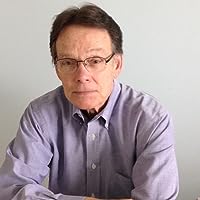
“Actually, we’re with the United States Army stationed in Germany. My friend Paul comes here about every two to three weeks to visit his Dutch girlfriend.”
― Lost Identity
― Lost Identity

“ “Bad news. The Egyptians have left Bogotá on one of six American Airlines’ flights. Steve, I lost them.”
― Fatal Identity
― Fatal Identity

“It wasn’t until I noticed two of the words on the sheet printed on a folder label. Sure enough, it was Williams’ study titled ‘Nuclear Waste Management.”
― Fatal Identity
― Fatal Identity

“There is a world of difference between a leadership that is based on love and respect, and one that is based on fear.”
―
―

“ “Yes, well, I thought you should see it. The cover page is in Arabic scribblin’, but the next hundred-plus pages are in five sections, and in English. I can’t for the life of me figure out what to make of it. This appears to be more American, and it seems to be a kind of scientific material. Have a look at it and let me know what to tell the boys in Z-land,”
― Fatal Identity
― Fatal Identity

“I love women whose hidden desires make horses put an end to their lives at the threshold”
― Unfortunately, It Was Paradise: Selected Poems
― Unfortunately, It Was Paradise: Selected Poems

“the people who live in the last places - the people who are most neglected and least valued by the larger world - often represent the best of who we are and the finest standard of what we are meant to become. This is the power that last places hold over me, and why I have found it impossible to resist their pull.”
― Stones Into Schools: Promoting Peace With Books, Not Bombs, in Afghanistan and Pakistan
― Stones Into Schools: Promoting Peace With Books, Not Bombs, in Afghanistan and Pakistan
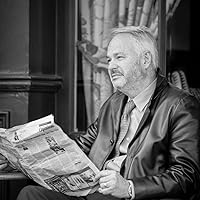
“THE MIDDLE OF WHAT? EAST OF WHERE? THE REGION’S VERY name is based on a European view of the world, and it is a European view of the region that shaped it. The Europeans used ink to draw lines on maps: they were lines that did not exist in reality and created some of the most artificial borders the world has seen. An attempt is now being made to redraw them in blood.”
― Prisoners of Geography: Ten Maps That Tell You Everything You Need to Know About Global Politics
― Prisoners of Geography: Ten Maps That Tell You Everything You Need to Know About Global Politics

“As he defended the book one evening in the early 1980s at the Carnegie Endowment in New York, I knew that some of what he said was true enough, just as some of it was arguably less so. (Edward incautiously dismissed 'speculations about the latest conspiracy to blow up buildings or sabotage commercial airliners' as the feverish product of 'highly exaggerated stereotypes.') Covering Islam took as its point of departure the Iranian revolution, which by then had been fully counter-revolutionized by the forces of the Ayatollah. Yes, it was true that the Western press—which was one half of the pun about 'covering'—had been naïve if not worse about the Pahlavi regime. Yes, it was true that few Middle East 'analysts' had had any concept of the latent power of Shi'ism to create mass mobilization. Yes, it was true that almost every stage of the Iranian drama had come as a complete surprise to the media. But wasn't it also the case that Iranian society was now disappearing into a void of retrogressive piety that had levied war against Iranian Kurdistan and used medieval weaponry such as stoning and amputation against its internal critics, or even against those like unveiled women whose very existence constituted an offense?”
― Hitch 22: A Memoir
― Hitch 22: A Memoir

“Edward genially enough did not disagree with what I said, but he didn't seem to admit my point, either. I wanted to press him harder so I veered close enough to the ad hominem to point out that his life—the life of the mind, the life of the book collector and music lover and indeed of the gallery-goer, appreciator of the feminine and occasional boulevardier—would become simply unlivable and unthinkable in an Islamic republic. Again, he could accede politely to my point but carry on somehow as if nothing had been conceded. I came slowly to realize that with Edward, too, I was keeping two sets of books. We agreed on things like the first Palestinian intifadah, another event that took the Western press completely off guard, and we collaborated on a book of essays that asserted and defended Palestinian rights. This was in the now hard-to-remember time when all official recognition was withheld from the PLO. Together we debated Professor Bernard Lewis and Leon Wieseltier at a once-celebrated conference of the Middle East Studies Association in Cambridge in 1986, tossing and goring them somewhat in a duel over academic 'objectivity' in the wider discipline. But even then I was indistinctly aware that Edward didn't feel himself quite at liberty to say certain things, while at the same time feeling rather too much obliged to say certain other things. A low point was an almost uncritical profile of Yasser Arafat that he contributed to Interview magazine in the late 1980s.”
― Hitch 22: A Memoir
― Hitch 22: A Memoir

“Though he never actually joined it, he was close to some civilian elements of the Democratic Front for the Liberation of Palestine, which was the most Communist (and in the rather orthodox sense) of the Palestinian formations. I remember Edward once surprising me by saying, and apropos of nothing: 'Do you know something I have never done in my political career? I have never publicly criticized the Soviet Union. It’s not that I terribly sympathize with them or anything—it's just that the Soviets have never done anything to harm me, or us.' At the time I thought this a rather naïve statement, even perhaps a slightly contemptible one, but by then I had been in parts of the Middle East where it could come as a blessed relief to meet a consecrated Moscow-line atheist-dogmatist, if only for the comparatively rational humanism that he evinced amid so much religious barking and mania. It was only later to occur to me that Edward's pronounced dislike of George Orwell was something to which I ought to have paid more attention.”
― Hitch 22: A Memoir
― Hitch 22: A Memoir
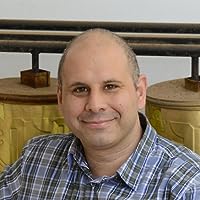
“It is almost impossible to overemphasize the importance with which ancestry is held in the Middle East and North Africa.”
― Travels With Myself
― Travels With Myself

“Control over the production and distribution of oil is the decisive factor in defining who rules whom in the Middle East.”
― The Quotable Hitchens from Alcohol to Zionism: The Very Best of Christopher Hitchens
― The Quotable Hitchens from Alcohol to Zionism: The Very Best of Christopher Hitchens
“...the Palestinian Arabs' obsession with the Jews and rejection of all political compromise was inspired by Islamic teachings as well as by European fascism.”
― A Century of Palestinian Rejectionism and Jew Hatred
― A Century of Palestinian Rejectionism and Jew Hatred
“If the Palestinian people really suffered a nakba, it was largely of their own making — and that of their grand mufti.”
― A Century of Palestinian Rejectionism and Jew Hatred
― A Century of Palestinian Rejectionism and Jew Hatred
“...British appeasement of the Palestinian Arabs led directly to the deaths of hundreds of thousands of Jews [in the Holocaust] who might otherwise have found refuge in Palestine.”
― A Century of Palestinian Rejectionism and Jew Hatred
― A Century of Palestinian Rejectionism and Jew Hatred
“Israelis are a mix of North African, Levantine, and Eastern European, which inflames the politics but does amazing things for the women.”
― Emergency Sex (And Other Desperate Measures) : True Stories from a War Zone
― Emergency Sex (And Other Desperate Measures) : True Stories from a War Zone
“Zionist willingness to compromise met by Palestinian rejection and Jew hatred.”
― A Century of Palestinian Rejectionism and Jew Hatred
― A Century of Palestinian Rejectionism and Jew Hatred
All Quotes
|
My Quotes
|
Add A Quote
Browse By Tag
- Love Quotes 98k
- Life Quotes 76.5k
- Inspirational Quotes 73.5k
- Humor Quotes 44k
- Philosophy Quotes 30k
- Inspirational Quotes Quotes 27k
- God Quotes 26.5k
- Truth Quotes 24k
- Wisdom Quotes 24k
- Romance Quotes 23.5k
- Poetry Quotes 22.5k
- Death Quotes 20k
- Life Lessons Quotes 20k
- Happiness Quotes 18.5k
- Quotes Quotes 18k
- Faith Quotes 18k
- Hope Quotes 18k
- Inspiration Quotes 17k
- Spirituality Quotes 15k
- Religion Quotes 15k
- Motivational Quotes 15k
- Writing Quotes 15k
- Relationships Quotes 14.5k
- Life Quotes Quotes 14.5k
- Love Quotes Quotes 14k
- Success Quotes 13.5k
- Time Quotes 12.5k
- Motivation Quotes 12.5k
- Science Quotes 11.5k
- Motivational Quotes Quotes 11.5k



